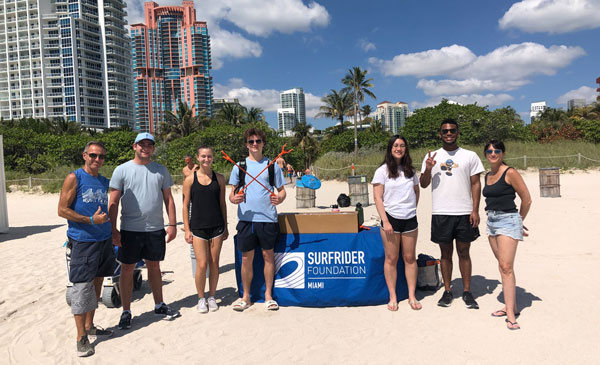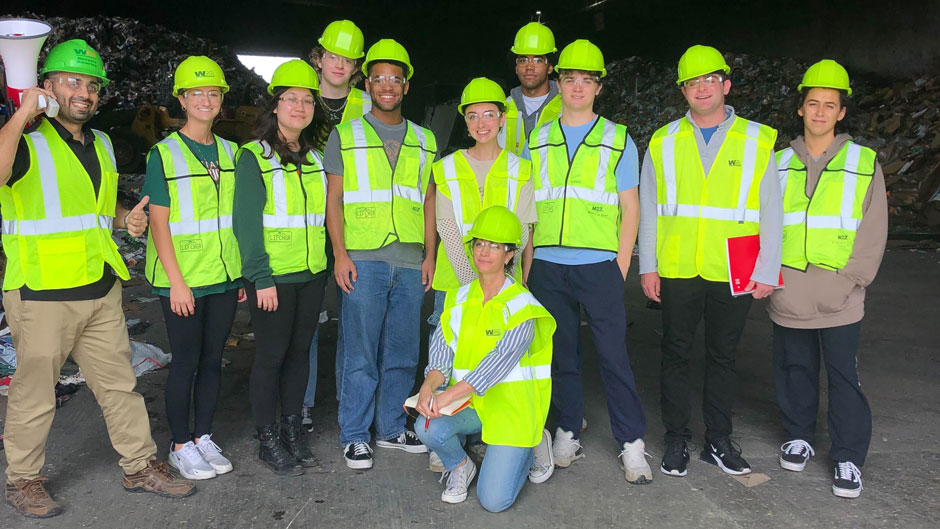Undergraduate course offerings in the College of Arts and Sciences cast a wide enough net to meet virtually any student interest. That includes the looming challenge of climate change and the use of plastics.
This spring, Pamela Geller, an associate professor of anthropology, is teaching a course called “The Archaeology of Plastics.”
“The class looks at plastics through the lens of archaeology, other subfields within anthropology, and various environmental sciences, to teach students to think more critically about the environment and how we interact with it,” said Geller. “It uses multiple disciplinary methods besides those favored by anthropology, including discourse analysis, archival analysis, and art, to achieve this goal.”
Geller’s organizing theme for the course amounts to what she calls an “archaeology of the contemporary.”
“The idea is that the methods and theories from archaeology can be applied to looking at things in the past, like ceramics, stone, glass, or metal. But in light of the current age in which we live, we must also look at plastic,” explained Geller. “Plastic is a synthetic polymer. Its production and consumption, its disposal, and its afterlife — which is the main concern of archaeologists — is dramatically different from any other kind of material that we have seen humans use.”

One central tenet of the course involves helping students to adopt a more critical lens for viewing the role of the individual versus the role of industry, which has created and exacerbated the plastics crisis. Since plastic is a problem of global proportions, Geller explained, the most effective solutions need to occur on an equally grand scale.
Geller accomplishes the task of helping students to adopt a more critical lens in part through the traditional seminar methods of reading scholarly articles and having students produce written responses that reflect engagement with the ideas in their readings.
The course also includes interactive projects, like beach cleanups and a field trip to a local plastics recycling center. These off-campus excursions often make a strong impression on students.
“The recycling plant visit was really eye-opening,” said Sterling Cole, a senior political science major currently taking the class. “If I didn’t take this class, I don’t think that I would have ever gone to a recycling plant in my life. Seeing in person what you are learning about is one of the most impactful things you can do to begin understanding the size and nature of the plastics problem.”
This is the kind of learning that changes individual behavior and can promote critical awareness in larger groups of people.
“From now on, I will try to be conscious of buying things that are more sustainable and to remind friends and family to be more mindful about what we consume, because plastic waste is everywhere,” said Cole.
The ubiquity of plastic waste has become an existential question that Geller encourages students to embrace head on. In designing her course, she has done just that.
“The problem is so massive; one course could never solve it,” Geller said. “I find that the best way for me to contribute to a solution is to plant seeds so students can incorporate these ideas in their future careers.”
Jake Krongard, a senior environmental science and policy major who took the class in the spring of 2023, is one student who seems to be rising up to Geller’s vision.
Krongard did an environmental protection internship last summer with the New Jersey State Park Service, where he worked on beautification efforts at a state park.
“I spent a lot of time picking up trash that people with no sense of environmental etiquette would leave behind,” he said. “I remember emailing Dr. Geller to tell her about all the different kinds of plastic that I was finding in the middle of the woods and on the lake’s shoreline. That experience resonated with me because of what I learned in her class.”

